Peugeot 308 vs SEAT Arona - Differences and prices compared
Compare performance (195 HP vs 150 HP), boot space and price (29200 £ vs 20700 £ ) at a glance. Find out which car is the better choice for you – Peugeot 308 or SEAT Arona?
Costs and Efficiency:
Price and efficiency are key factors when choosing a car – and this is often where the real differences emerge.
SEAT Arona has a decisively advantage in terms of price – it starts at 20700 £ , while the Peugeot 308 costs 29200 £ . That’s a price difference of around 8537 £.
Fuel consumption also shows a difference: Peugeot 308 manages with 2.30 L and is therefore clearly more efficient than the SEAT Arona with 5.30 L. The difference is about 3 L per 100 km.
Engine and Performance:
Power, torque and acceleration are the classic benchmarks for car enthusiasts – and here, some clear differences start to show.
When it comes to engine power, the Peugeot 308 has a clearly perceptible edge – offering 195 HP compared to 150 HP. That’s roughly 45 HP more horsepower.
In acceleration from 0 to 100 km/h, the Peugeot 308 is hardly perceptible quicker – completing the sprint in 7.60 s, while the SEAT Arona takes 8.30 s. That’s about 0.70 s faster.
There’s also a difference in torque: Peugeot 308 pulls to a small extent stronger with 300 Nm compared to 250 Nm. That’s about 50 Nm difference.
Space and Everyday Use:
Whether family car or daily driver – which one offers more room, flexibility and comfort?
Both vehicles offer seating for 5 people.
In curb weight, SEAT Arona is clearly perceptible lighter – 1188 kg compared to 1453 kg. The difference is around 265 kg.
In terms of boot space, the Peugeot 308 offers slight more room – 412 L compared to 400 L. That’s a difference of about 12 L.
When it comes to payload, SEAT Arona hardly perceptible takes the win – 522 kg compared to 503 kg. That’s a difference of about 19 kg.
Who wins the race?
The Peugeot 308 proves to be outperforms in nearly all aspects and therefore becomes our DriveDuel Champion!
Peugeot 308 is the better all-rounder in this comparison.
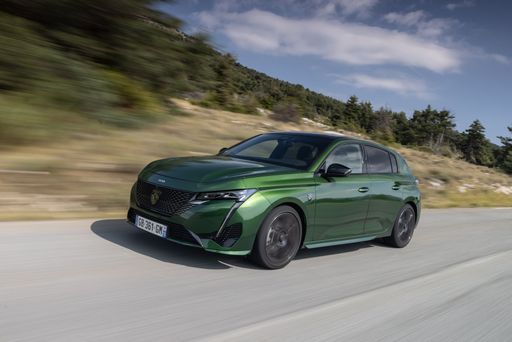
Peugeot 308
Costs and Consumption
View detailed analysis
Engine and Performance
View detailed analysis
Dimensions and Body
View detailed analysis
Peugeot 308
The Peugeot 308 brings a sleek, feline profile and an unexpectedly upscale cabin, with clever packaging and materials that feel a touch more premium than you might expect. It’s composed on the road, easy to live with for daily life, and a smart choice if you want a stylish hatch that still behaves when the road gets interesting.
details
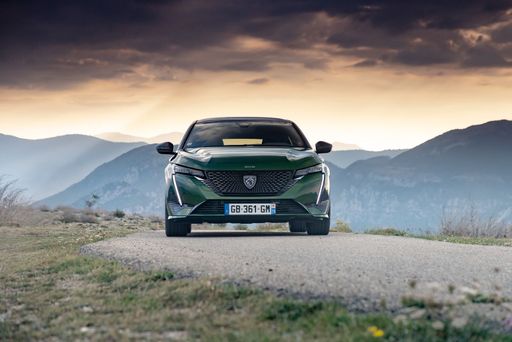
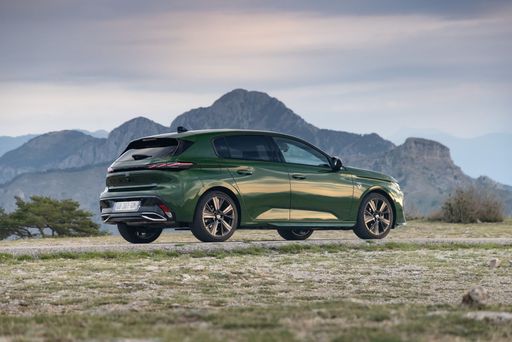
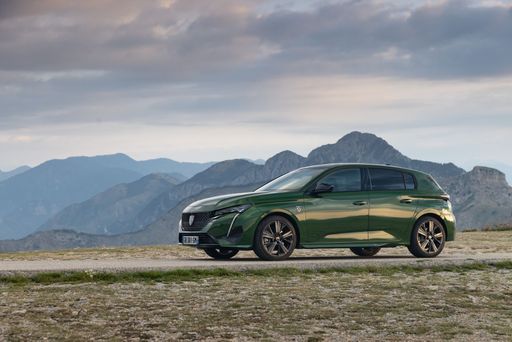
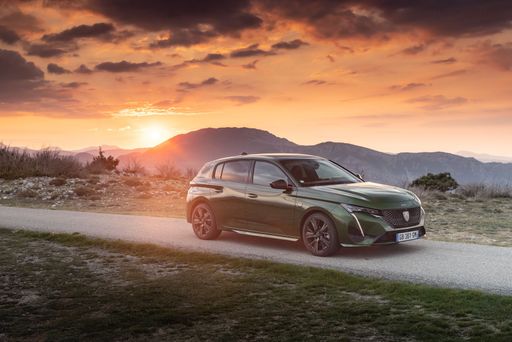
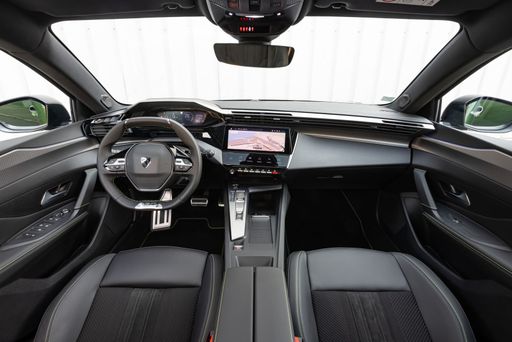
SEAT Arona
The SEAT Arona is a cheeky urban crossover that mixes sharp styling with sensible practicality, making it an appealing choice for buyers who want personality without fuss. It’s zippy in traffic, comfortable enough for daily driving, and brings enough character to make routine journeys feel a little more fun.
details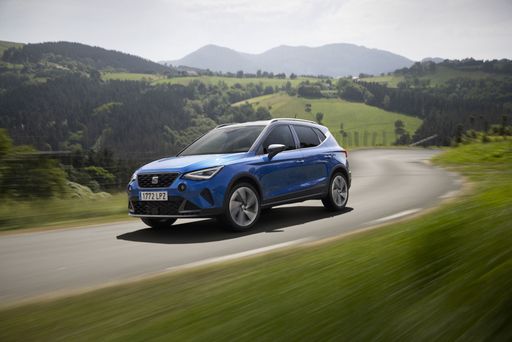

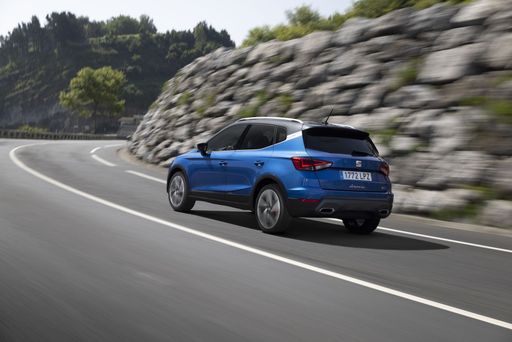
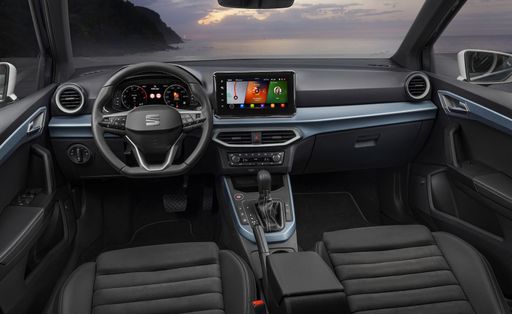
Costs and Consumption |
|
|---|---|
|
Price
29200 - 42600 £
|
Price
20700 - 30500 £
|
|
Consumption L/100km
2.3 - 5 L
|
Consumption L/100km
5.3 - 5.8 L
|
|
Consumption kWh/100km
15.60 kWh
|
Consumption kWh/100km
-
|
|
Electric Range
78 - 450 km
|
Electric Range
-
|
|
Battery Capacity
0.40 kWh
|
Battery Capacity
-
|
|
co2
0 - 129 g/km
|
co2
120 - 132 g/km
|
|
Fuel tank capacity
42 - 52 L
|
Fuel tank capacity
-
|
Dimensions and Body |
|
|---|---|
|
Body Type
Hatchback
|
Body Type
SUV
|
|
Seats
5
|
Seats
5
|
|
Doors
5
|
Doors
-
|
|
Curb weight
1453 - 1749 kg
|
Curb weight
1188 - 1268 kg
|
|
Trunk capacity
314 - 412 L
|
Trunk capacity
400 L
|
|
Length
4367 mm
|
Length
-
|
|
Width
1852 mm
|
Width
1780 mm
|
|
Height
1438 mm
|
Height
-
|
|
Max trunk capacity
1258 - 1323 L
|
Max trunk capacity
-
|
|
Payload
430 - 503 kg
|
Payload
502 - 522 kg
|
Engine and Performance |
|
|---|---|
|
Engine Type
Petrol MHEV, Diesel, Plugin Hybrid, Electric
|
Engine Type
Petrol
|
|
Transmission
Automatic
|
Transmission
Manuel, Automatic
|
|
Transmission Detail
Dual-Clutch Automatic, Automatic Gearbox, Reduction Gearbox
|
Transmission Detail
Manual Gearbox, Dual-Clutch Automatic
|
|
Drive Type
Front-Wheel Drive
|
Drive Type
Front-Wheel Drive
|
|
Power HP
131 - 195 HP
|
Power HP
95 - 150 HP
|
|
Acceleration 0-100km/h
7.6 - 10.6 s
|
Acceleration 0-100km/h
8.3 - 11.1 s
|
|
Max Speed
170 - 225 km/h
|
Max Speed
-
|
|
Torque
230 - 300 Nm
|
Torque
175 - 250 Nm
|
|
Number of Cylinders
3 - 4
|
Number of Cylinders
3 - 4
|
|
Power kW
96 - 144 kW
|
Power kW
70 - 110 kW
|
|
Engine capacity
1199 - 1598 cm3
|
Engine capacity
999 - 1498 cm3
|
General |
|
|---|---|
|
Model Year
2025
|
Model Year
2025
|
|
CO2 Efficiency Class
C, D, B, A
|
CO2 Efficiency Class
D
|
|
Brand
Peugeot
|
Brand
SEAT
|
Is the Peugeot 308 offered with different drivetrains?
Available configurations include Front-Wheel Drive.




